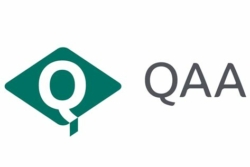When launching new programmes or reviewing or making changes to existing ones, you’ll need to go through your own institution’s internal validation process (your Registry or similar function will be able to advise on this), as well as considering the Quality Assurance Agency’s subject benchmarks. You’ll also need to consider whether you wish to have the programme accredited by the appropriate professional institution.
In Scotland, Enhancement activity is planned and directed by the Scottish Higher Education Enhancement Committee (SHEEC). It aims to enhance the student learning experience in Scottish higher education by identifying specific areas (Themes) for development. The Themes encourage staff and students to share current good practice and collectively generate ideas and models for innovation in learning and teaching.
In Northern Ireland, the QAA developed and integrated quality and enhancement approach. Handbooks, together with guidance for students may be found here.
More information:
- Accreditation and Quality Assurance Toolkit home
- About the Accreditation and Quality Assurance Toolkit
- Scotland
- Northern Ireland
- Wales
- Accreditation
- Quality Assurance
Any views, thoughts, and opinions expressed herein are solely that of the author(s) and do not necessarily reflect the views, opinions, policies, or position of the Engineering Professors’ Council or the Toolkit sponsors and supporters.
 When launching new programmes or reviewing or making changes to existing ones, you’ll need to go through your own institution’s internal validation process (your Registry or similar function will be able to advise on this), as well as considering the Quality Assurance Agency’s subject benchmarks. You’ll also need to consider whether you wish to have the programme accredited by the appropriate professional institution.
When launching new programmes or reviewing or making changes to existing ones, you’ll need to go through your own institution’s internal validation process (your Registry or similar function will be able to advise on this), as well as considering the Quality Assurance Agency’s subject benchmarks. You’ll also need to consider whether you wish to have the programme accredited by the appropriate professional institution.